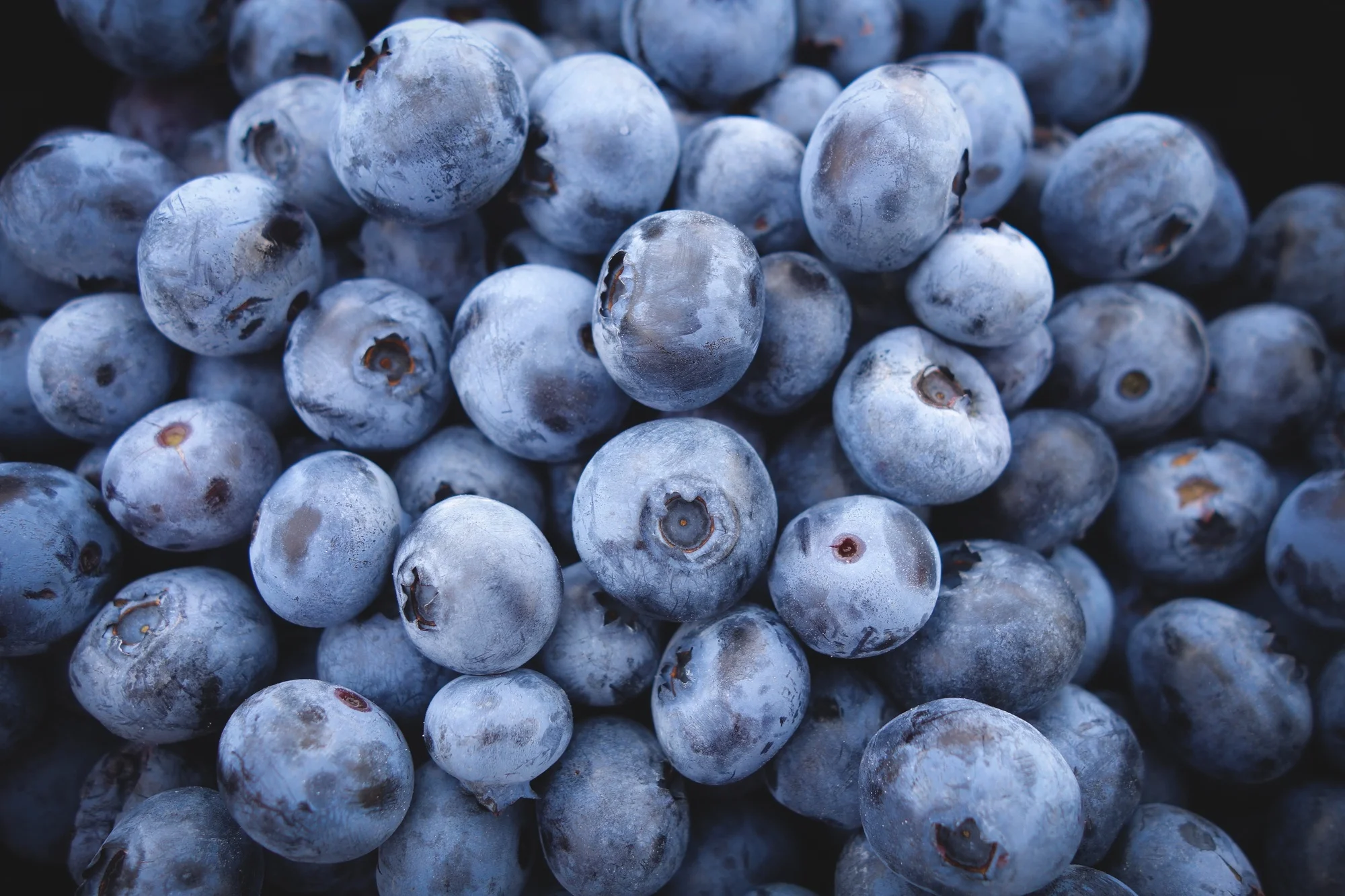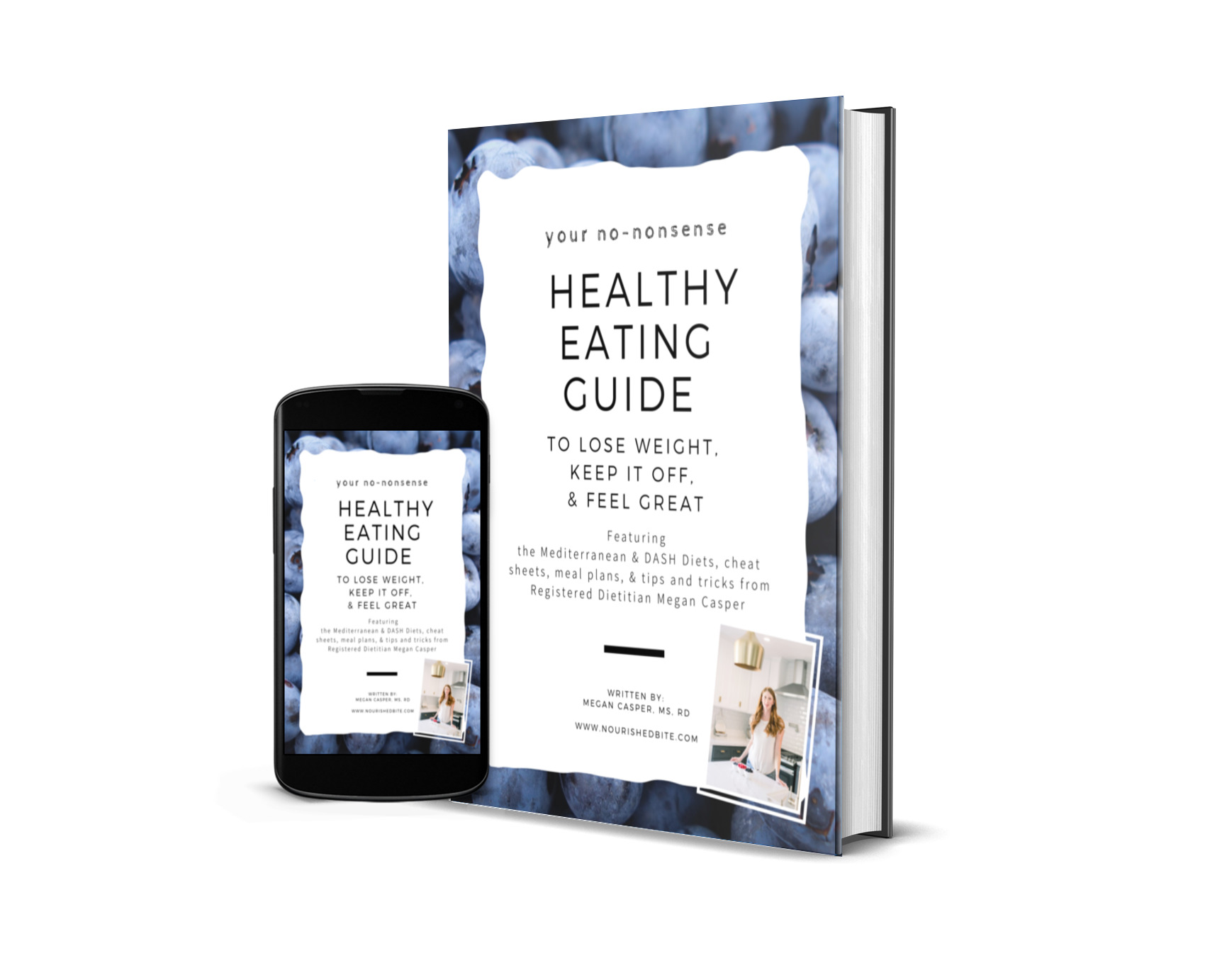Why You Need to Start Adding Herbs To Your Meals - Today
/These tiny leaves were popular way before microgreens became cool.
Herbs are way more than just a garnish! These tiny little leaves are packed with goodness. Not only do they add flavor and color to a meal, herbs are also full of nutrients and disease-fighting antioxidants.
Herbs, like all plants, make certain chemicals to fend off predators and protect themselves from the sun. These various chemicals are usually referred to as phytochemicals and essential oils -- and they have amazing effects for us as well. Research shows that a diet rich in polyphenols offers protection against the development of cancers, cardiovascular diseases, diabetes, osteoporosis, neurodegenerative diseases, and more. Researchers at the USDA found that herbs are higher in antioxidant levels than fruits, vegetables and even spices such as garlic.
Worried about your cardiovascular health, or have high blood pressure? Adding herbs and spices is a great way to add flavor - and ditch salt. Plus some herbs, like thyme, help reduce cholesterol and hypertension.
What are the best ways to use herbs?
You probably think of herbs as garnishes, and added to soups, stews and other baked dishes -- but you can do SO much more with them. Try:
Making this delish herb dressing and adding to salads, sides, and veggies.
Add parsley, dill, tarragon or thyme to eggs.
Tuck some basil into your sandwich.
Toss in herbs like parsley, basil, mint, or cilantro to make a basic salad pop.
Add parsley, rosemary or dill to roasted or mashed potatoes.
Crush mint or basil leaves and add them to water or tea.
Brew up mint or chamomile leaves for a soothing, refreshing tea.
Herbs and Their Health Benefits:
This list is by no means comprehensive, but here are some of my favs!
Basil: Not only is basil delicious, it also contains numerous antioxidant-rich essential oils and phytonutrients, which reduce inflammation and fight disease. Studies have found these amazing compounds help fight cancer, reduce free radical damage, (which cause both disease and aging) and boost the immune system. Eat it on tomato, sprinkled in dishes, or check out my lemon basil hummus.
Chamomile: You’ve probably heard that chamomile tea can settle you down for a good night of sleep, but it can do so much more. These tiny little flowers are high in various types of antioxidants, which reduce free radical damage. This fragrant herb can also reduce anxiety and may help reduce pain. Only trace amounts of some antioxidants and oils are found in tea, so if you can, grow these yourself and brew a cup fresh!
Lavender: Lavender is well known for its soothing and calming aroma. While not used in many dishes, it can be added to fresh salads, meat dishes, teas, desserts and cocktails. This tiny little flower is potent so use sparingly. Add dried flowers to baths, potpourri mixes - really anywhere you want it to smell amazing! I love dabbing lavender oil on my wrists and neck at night to set the mood for sleep; mixed in a diffuser with rosemary, cedarwood and lemon (it makes the house smell like a spa!), or dabbed on dryer balls and tossed in with laundry. A dab of lavender oil can also help soothe itchy skin from bug bites. (I recently learned about essential oils and LOVE them. If you’d like to learn more go here.)
Mint: Mint has a long been prized for its healthful properties. Dried mint leaves have been found in Egyptian pyramids dating around 1000 BCE and Hippocrates used mint to fixing ailing tummies. Science is catching up: peppermint oil was recently found to be helpful in alleviating symptoms of irritable bowel syndrome and can help reduce bloating. The strong antioxidants in these plants have also been shown to protect against bacteria, viruses, and even cancer. Research finds that smelling peppermint can boost mood and actually improve memory. With all these amazing benefits, don’t you want to brew up a cup of tea right now?
Oregano: Oregano is a member of the mint family, and it’s had a long history in folk medicine for helping treat colds, indigestion and upset tummies. Yet again, people were on to something. Now research has found that oregano is a potent antibacterial - without the side effects of common antibiotics. It also helps fight viral infections - so you should gobble up oregano when you have a cold. Oregano provides vitamins K, E, calcium, iron, and fiber - but it’s also one of the most amazing sources of antioxidants. You’ve heard that blueberries are high in antioxidants? Well, one little tablespoon of oregano has four times more antioxidants than a serving of blueberries. Crazy right? In fact of all herbs, oregano ranks the highest in antioxidants. It’s time to start eating more oregano!
Parsley: Parsley has been used in folk medicine for all sorts of things - from hypertension to cardiac disease to urinary disease to diabetes. The active ingredients in parsley, which include phenolic compounds, antioxidant flavonoids, essential oils like myristicin and apiol, and various nutrients like vitamins K, C and A, give it a potent punch which helps it act as a diuretic (aka: reduce bloating) and reduce inflammation.
Rosemary: I’ve always LOVED to run my hands along rosemary and smell the aroma. It turns out I was onto something - the smell of rosemary can help boost concentration and mood. Rosemary also has an insanely high ORAC score, which is a way to measure antioxidant activity, which explains why it is so protective from a wide range of cancers. Recent studies have found that even the small amounts of rosemary commonly used in cooking can help slow cognitive decline in older people.
Scallions: Okay, I know scallions are technically onions, but they’re grown in an herb garden, okay? Scallions are closer to their wild cousins than modern onions, and also have more antioxidants and nutrition. They can help aid in weight loss, provide vitamin K for blood clotting, boost immunity, improve cardiovascular health, block cancer growth, build stronger bones.. Okay, you get it - they’re REALLY good for you. I like to add them to dishes and salads to add color and a subtle onion flavor.
Tarragon: Did you know tarragon is called the “king of herbs” in France? And they know their seasonings! This herb is usually tossed in stews, sauces, fish, chicken dishes, omelets and other egg dishes (check out: my herb egg muffins) to add a distinct pop of flavor and color. It can also improve digestion, fight SIBO (the overgrowth of certain bacteria in the intestines), and reduce bloating.
Thyme: Thyme is a very commonly used herb, not just in dishes the world over. It is such a potent antibacterial that it is also added to mouthwash, toothpaste and hand sanitizer. It has numerous phytochemicals (like thymol, flavonoids apigenin, naringenin, luteolin, and thymonin) which make it a strong antioxidant, allowing it to help fight diseases like cancer and free radical damage. Thyme also helps sore throats, reduces cholesterol and can even boost your mood. (Check out my recipe with thyme and roasted beets here.)
A few helpful items:
If you’re not growing your own, buying herbs can be expensive. Invest in an herb keeper to keep them fresh longer.
Basil isn’t so bad, but the tiny little leaves of say oregano or thyme can be a pain in the butt to remove from the stems. I like to use this little guy to speed up the process.



